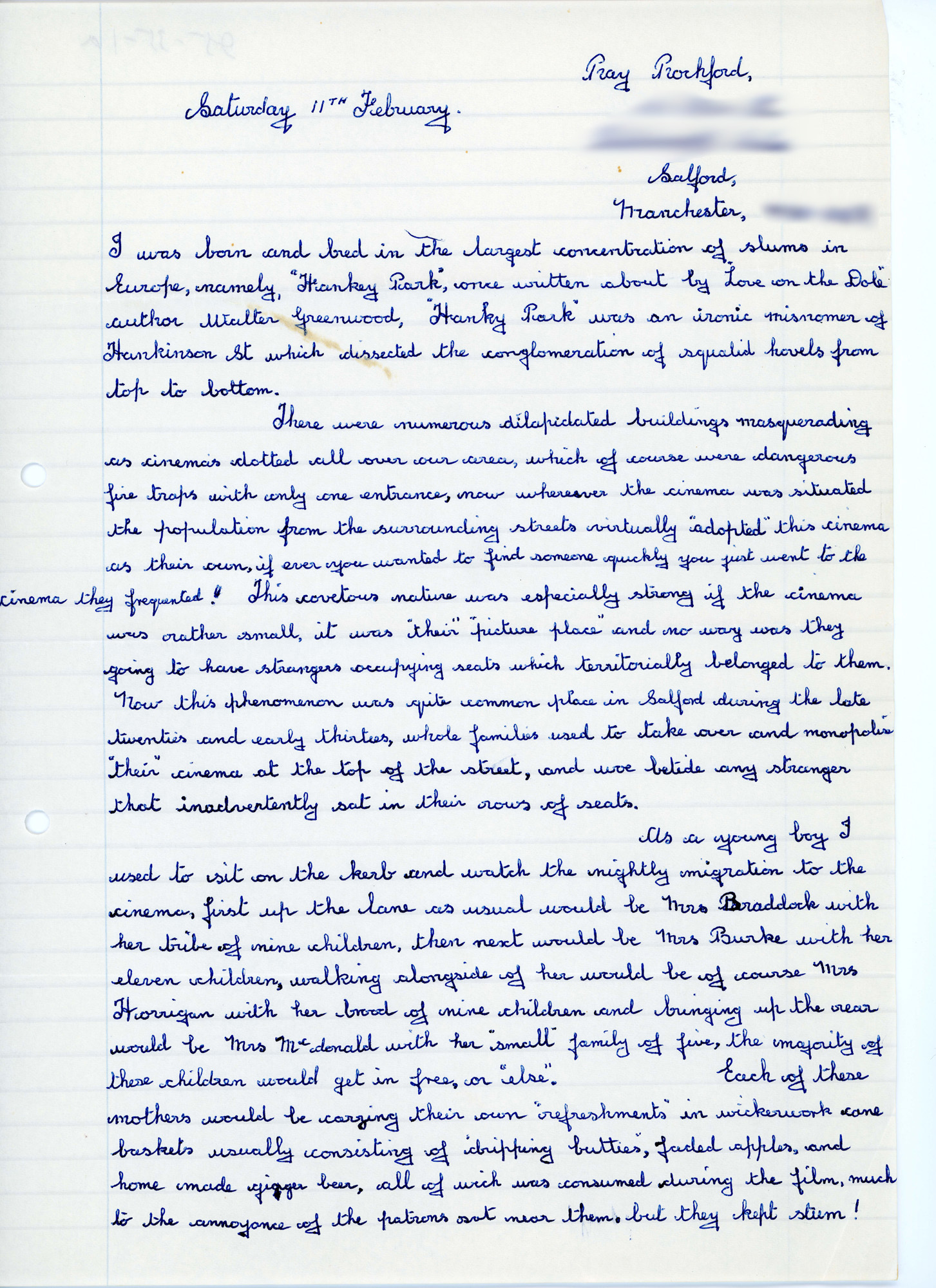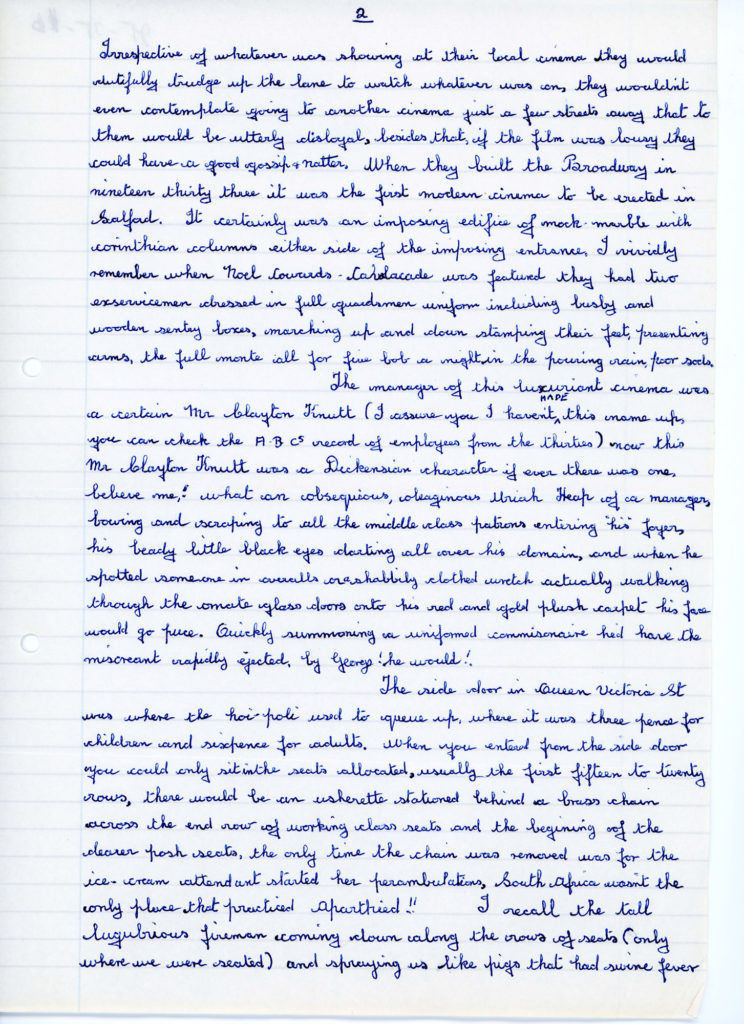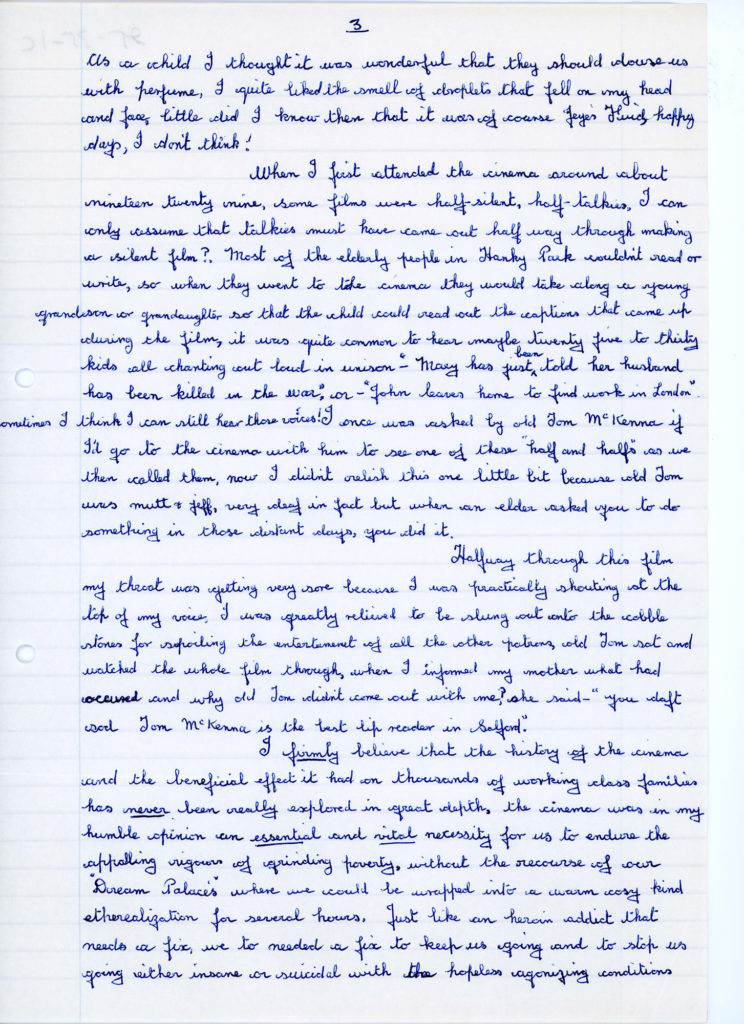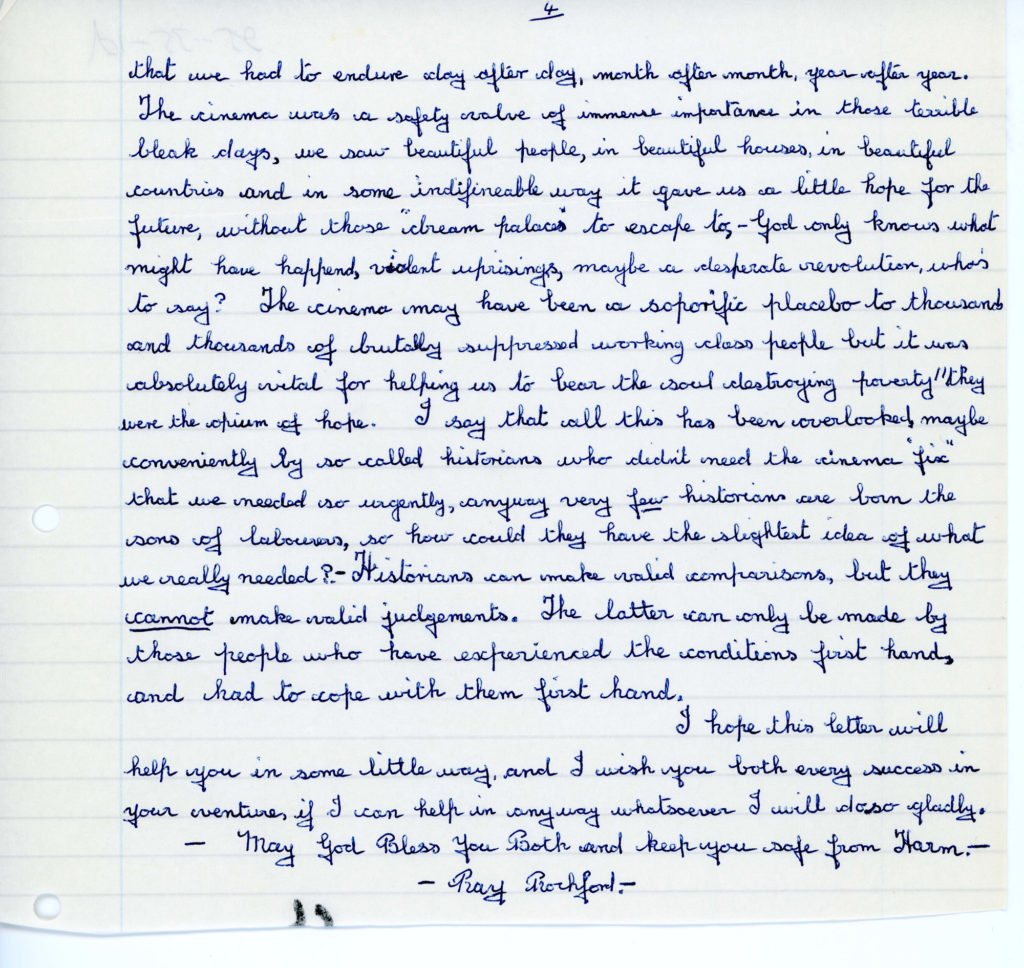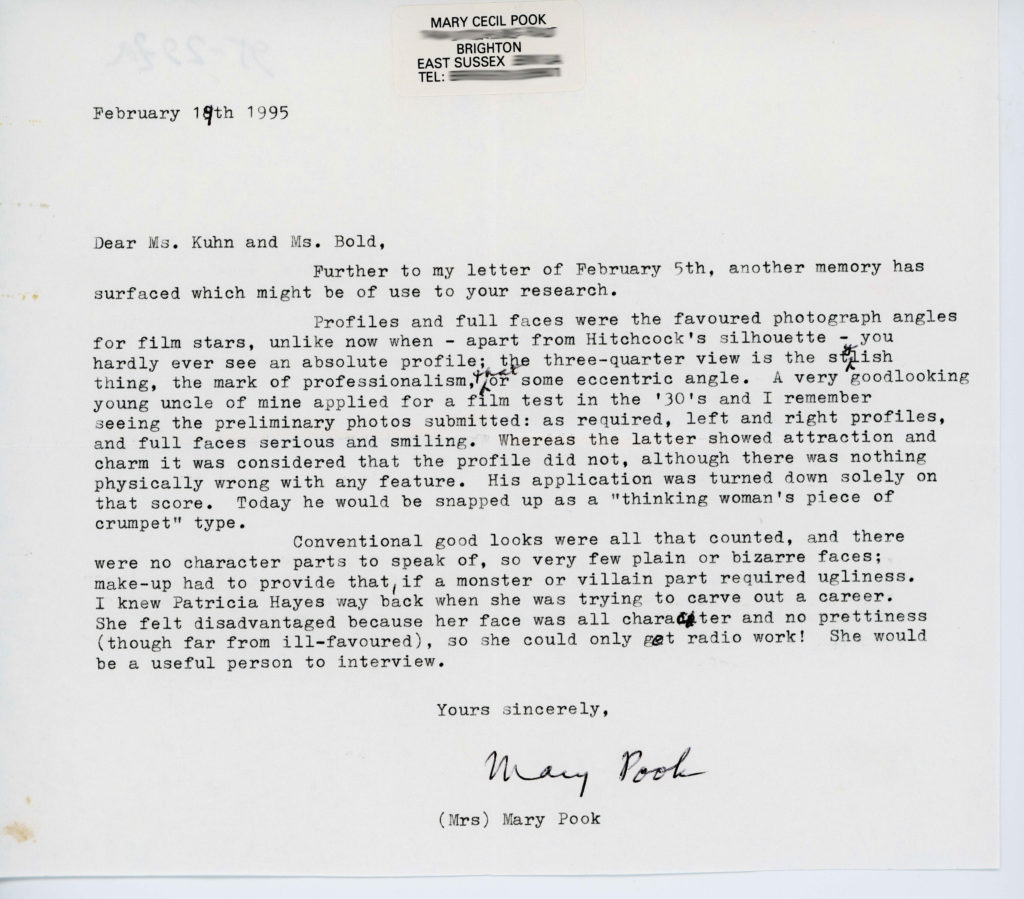Today’s featured item is one of my favourite letters in the collection, written by respondent Ray Rochford. Ray had grown up in the heavily working class area of Hanky Park, Salford. This vast slum (so described by both Ray and, as he notes, author Walter Greenwood) was demolished in 1960, with The Guardian having recently re-published an article about this, along with photos – read here.
Class dynamics play quite heavily throughout Ray’s letter, with one notable example being in relation to Mr Clayton Knutt, manager of the ‘luxuriant’ Broadway cinema, which Ray describes as being the first ‘modern’ cinema in Salford. Mr Knutt is described by Ray as not being particularly fond of the more working-class audiences of the area.
The manager of this luxuriant cinema was a certain Mr Clayton Knutt (I assure you I haven’t made this name up, you can check the A. B. Cs record of employees from the thirties) now this Mr Clayton Knutt was a Dickensian character if ever there was one, believe me! What an obsequious, oleaginous Uriah Heap [sic] of a manager, bowing and scraping to all the middle class patrons entering “his” foyer, his beady little black eyes darting all over his domain, and when he spotted someone in overalls or a shabbily clothed wretch actually walking through the ornate glass doors onto his red and gold plush carpet his face would go puce. Quickly summoning a uniformed commissionaire [sic] he’d have the miscreant rapidly ejected, by George! He would!
Ray also took the time to describe what he considered to be the importance and ‘beneficial effect’ of the cinema for the working class, whilst noting also that he felt this relationship between cinemagoing and the working-class was (at the time of writing) under-explored. Of course, much work has been done within film and cinema historiography since the 1990s to represent ‘history from below’, making strides to ensure that working-class and everyday memories are represented and explored. Ultimately, Ray played his part in this, as his letter was one of many that the CCITNB project collected, curating a major resource for those interested in everyday cineamgoing of the the 1930s and surrounding decades.
Ray’s letter also details the change from silent to sound cinema in the late twenties – including silent films (and ‘half and halfs’) having to be narrated by audience members for those who could not read the inter-titles. He recalls one instance where he performed this duty for an elderly neighbour, who was also hard of hearing, resulting in Ray being ejected from the venue due the necessary volume of his narration:
I once was asked by old Tom McKenna if I’d go to the cinema with him to see one of these “half and halfs” as we then called them, now I didn’t relish this one little bit because old Tom was mutt & jeff, very deaf in fact but when an elder asked you to do something in those distant days, you did it.
Halfway through this film my throat was getting very sore because I was practically shouting at the top of my voice, I was greatly relieved to be slung out onto the cobble stones for spoiling the entertainment of all the other patrons, old Tom sat and watch the whole film though, when I informed my mother what had occurred and why old Tom didn’t come out with me? She said – “you daft sod Tom McKenna is the best lip reader in Salford”.
Below are our high-resolution scans of Ray’s letter for you to read at your leisure.
